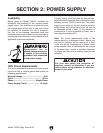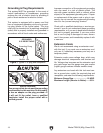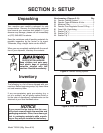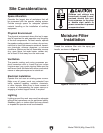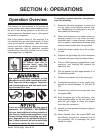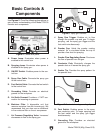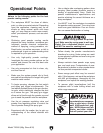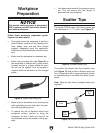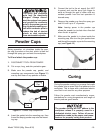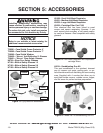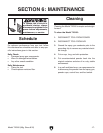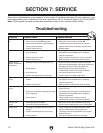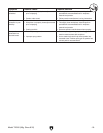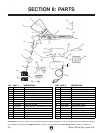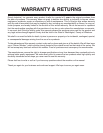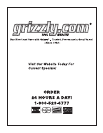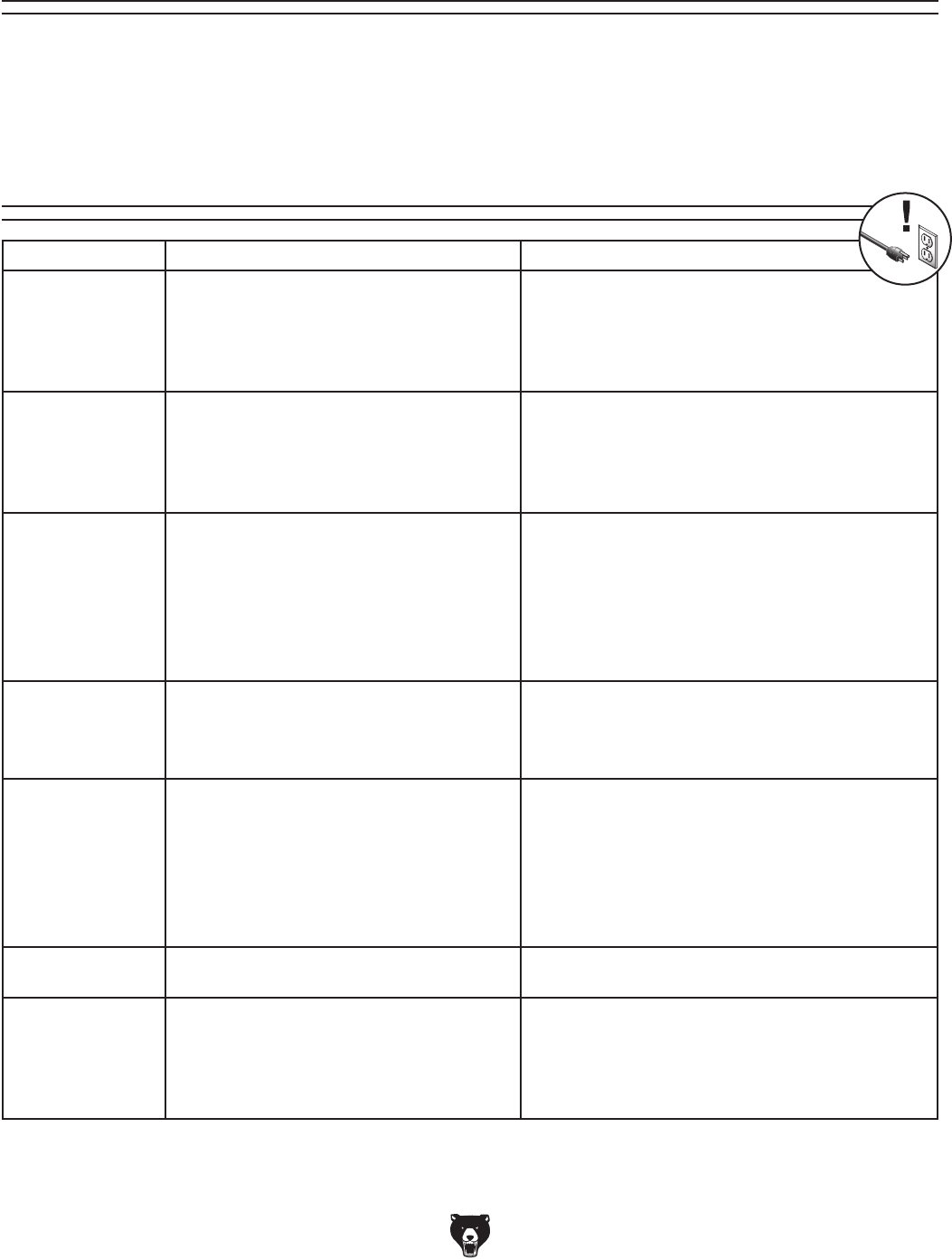
-18-
Model T25100 (Mfg. Since 8/12)
Review the troubleshooting and procedures in this section if a problem develops with your machine. If you
need replacement parts or additional help with a procedure, call our Technical Support at (570) 546-9663.
Note: Please gather the serial number and manufacture date of your machine before calling.
SECTION 7: SERVICE
Troubleshooting
Symptom Possible Cause Possible Solution
Tool does not turn
on.
1. Control box fuse is blown.
2. Power source turned OFF at breaker.
3. Wall fuse/circuit breaker is blown/tripped;
short in electrical system.
4. ON/OFF switch at fault.
1. Replace control box fuse (0.5A, Fast-Acting)
2. Make sure circuit breaker is turned ON.
3. Troubleshoot/repair source cause of overload;
replace weak breaker; find/repair electrical short.
4. Replace switch.
Poor adhesion. 1. Workpiece not properly cleaned/pre-treated
prior to spraying.
2. Coating under/over-cured.
3. Powder coat too thick.
1. Thoroughly clean workpiece; research/perform
pretreatment recommendations for workpiece
material and powder.
2. Follow powder manufacturer's curing instructions.
3. Reduce powder coat thickness when spraying.
Uneven spray
pattern, intermittent
powder flow.
1. Blockage in spray gun body/powder cup.
2. Damp powder.
3. Air pressure low.
4. Powder flow regulating screw too tight.
1. Disconnect tool from power, ground conducting
pole, put on protective gear, and use air pressure to
thoroughly clean spray gun and powder cup.
2. Check powder source; replace powder if
contaminated; replace in-line moisture filter(s).
3. Increase air pressure up to 30 PSI.
4. Loosen screw to increase powder flow.
Chipping after
curing.
1. Workpiece not properly cleaned/pre-
treated.
2. Powder coat too thick.
1. Thoroughly clean workpiece; research/perform
pretreatment recommendations for workpiece
material and powder.
2. Reduce powder coat thickness when spraying.
Cratering after
curing.
1. Powder is contaminated.
2. Workpiece not properly cleaned/pre-treated
prior to spraying.
3. Damp powder.
1. Thoroughly clean spray gun/powder cup; replace
power with new.
2. Thoroughly clean workpiece; research/perform
pretreatment recommendations for workpiece
material and powder.
3. Check powder source; replace powder if
contaminated; replace in-line moisture filter(s).
Off color after
curing.
1. Oven not properly ventilated.
2. Incorrect curing time/temperature.
1. Make sure oven is well ventilated during curing.
2. Follow powder manufacturer's curing instructions.
Orange peel. 1. Warming up of powder coat is too slow or
too fast.
2. Powder heat-damaged prior to spraying.
3. Coating too thin.
1. Check curing oven for proper operation; follow
powder manufacturer's curing instructions.
2. Thoroughly clean spray gun/powder cup; replace
powder with new.
3. Increase coating thickness when spraying.



